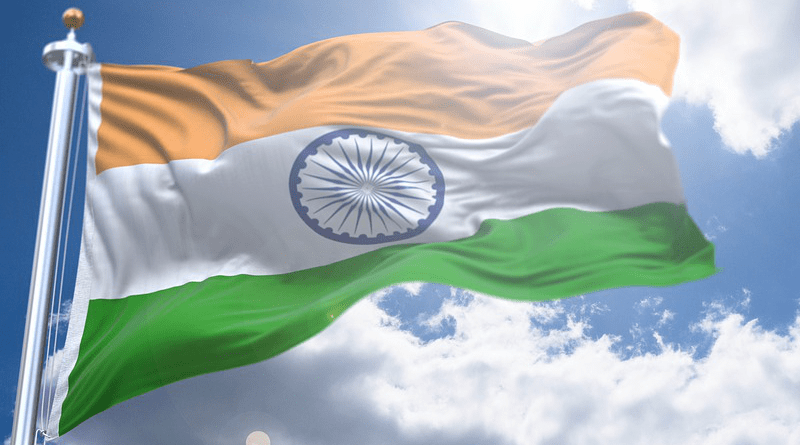G-20 In India – OpEd
The G-20 leaders’ summit is to be held in New Delhi on 9-10 September under India’s presidency. All elaborate arrangements are being made for a cosy stay, and blanket security for the delegates. Much of its fanfare is catching headlines in India media, engaged in projecting the summit as if it is bound to be a fabulous success under Indian presidency. On the contrary, it is a stark reality that the Group is faced with a myriad of gargantuan challenges on several fronts. It is indeed a herculean task before the G-20 Summit leaders to evolve a common consensus on the issues such as inclusive development, energy, climate change, global economy, global health, poverty and unemployment.
The real predicament, however, facing the Group is growing divergent voices on security and geopolitical issues, especially bashing Russia over the Ukrainian invasion. although China has made clear that the G-20 has no legal sanctity to discuss security issues within its ambit. On the contrary, the member states from developed nations are concerned about discussing and assessing the long-term impact of Russian invasion of Ukraine on global economy, financial markets, and the energy and food supply chain. This warrants, as reiterated by the Biden administration, an unequivocal condemnation and international isolation of Russia in one voice. While for India, it is a most delicate balancing task to appease the United States as its global strategic partner on the one hand and to avoid annoying its ‘all-weather friend’ Moscow on the other. For India, Russia is a reliable source of cheap crude oil, fertilizers, and defence equipment.
As mentioned before, India is circumspect about not to hobble its growing ties with the US and its allies in a quest for playing a meaningful role in advancing the interests of the global South, gripped by a sluggish economy and rising debt. This is an uphill task. Moreover, the Modi regime is also grappling with its own political survival in light of next year’s national polls. In the face of a tough challenge presented by a newly set up political front known as I.N.D.I.A(Indian National Developmental Inclusive Alliance), represented by 26 political parties, the US and other Western countries, including authoritarian regimes in China and Russia, are keeping a close vigil over as to who would steer India’s destiny. Amidst a high-pitched political environment in India, G-20 leaders are set to raise discordant voices on a host of issues ranging from geopolitics to global economy, cyber security, energy and environment.
How will India benefit from hosting the G-20 Summit? Modi’s battery of advisors and experts are working round the clock to ensure the fruitful outcome of the summit for Indian economy in terms of burgeoning foreign investments and more jobs for India’s unemployed youth.
More importantly, India and China are at loggerhead. Though they share common trade interests, their relations have reached at the lowest ebb since Chinese incursions along the Line of Control, especially the 2020 Galwan Valley clashes in which 20 Indian soldiers were killed in a hand-to-hand fight. Top commanders on both sides at a Major Generals level, met last month (August, 2023) to discuss modalities to undertake confidence building measures, essential for normalising bilateral relations. A growing trust deficit between New Delhi and Beijing does not augur well. Furthermore, per a recent decision at the BRICS Summit held in Johannesburg ,22-24 August 2023, Iran would join it as one of the new members in 2024.Ths implies an emerging China-Russia-Iran axis against the US that might further complicate the decision-making on global and regional issues under the G-20’s banner.
The G-20 Summit under India’s presidency faces a monumental challenge on the question of distributive justice, and especially on the issue of narrowing down the gnawing inequities and asymmetries in wealth between developed and developing nations. What role can India play at the Summit on behalf of developing and underdeveloped nations that look to New Delhi’s leadership?
Theoretically, the G-20 talks of an imperative need for inclusive growth and development. But the ground reality is that a major chunk of global population still remains marginalized, and is forced to live below the poverty line. Moreover, India needs to address and convince how embracing the digital economy will help reduce poverty. And how will G-20 leaders collectively resolve chronic problems faced by developing nations on multiple fronts— education, health and employment, including soaring prices of food, energy, and fertilizers? This is yet be seen how India can leverage its capabilities as an emerging global player to catalyse structural reforms in the World Bank and IMF to make these Bretton Woods institutions sensitive to the needs and issues of the Third World people who have grievously suffered at the hands of plunderers of their natural resources, denying them equitable justice. As a G-20 Summit Chair, India has a unique opportunity to reinvent multilateral cooperation to ensure economic growth with justice, and social welfare for Global South.

